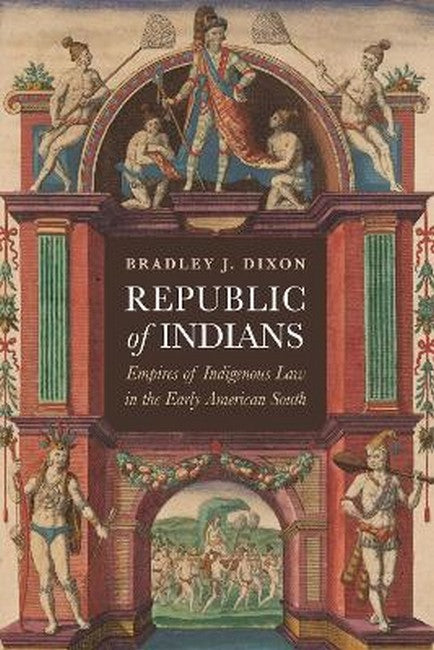Bradley J. Dixon is Assistant Professor of History at the University of Memphis.
Request Academic Copy
Please copy the ISBN for submitting review copy form
Description
Contents Prologue. "A Residencia for the Dead" 1 Chapter 1. Caciques and Kings, 1608-1632 Chapter 2. "Poor Indians," 1633-1673 Chapter 3. "Emboldened Indians," 1674-1678 Chapter 4. "Neither Vassals nor Subjects," 1670-1700 Chapter 5. "As the Spaniards Always Have Done," 1700-1715 Epilogue. The Authors of Their Sovereignty List of Abbreviations Notes Index Acknowledgments
"In Republic of Indians, Bradley J. Dixon inverts the conventional story line of early America. Local Native leaders and communities in the seventeenth and early eighteenth-century American South were not merely reactive subjects to Spanish and English colonists. Rather, through a close-up comparative frame, Dixon shows how they were active participants in the politics of the colonial regimes, they used colonial legal institutions and protocols to their favor, and, with their colonial partners, they forged a new hybrid colonial political entity-a republic of Indians." (Robbie Ethridge, author of From Chicaza to Chickasaw: The European Invasion and the Transformation of the Mississippian World, 1540-1715) "In this masterfully researched and thought-provoking work, Bradley J. Dixon not only compares the inner-workings of the Spanish and English empires in the region, but also shows that Native people were central to the social, political, and legal formations of the colonial world. Republic of Indians helps us reimagine the political landscape of the early South." (Alejandra Dubcovsky, author of Talking Back: Native Women and the Making of the Early South) "In artful prose, Bradley J. Dixon tells the story of how Native peoples like the Apalachees and Pamunkeys created Indigenous republics in Virginia and Florida by petitioning the Crown to defend their rights against the depredations of the settlers. In doing so, Republic of Indians offers a profound challenge to our assumptions about Native political power in the 1600s and 1700s, while showing how interconnected were the histories of the English and the Spanish in the Americas." (Craig Yirush, author of Settlers, Liberty, and Empire: The Roots of Early American Political Theory, 1675-1775)

